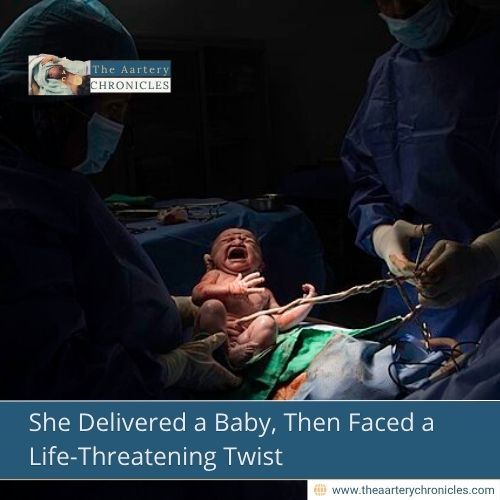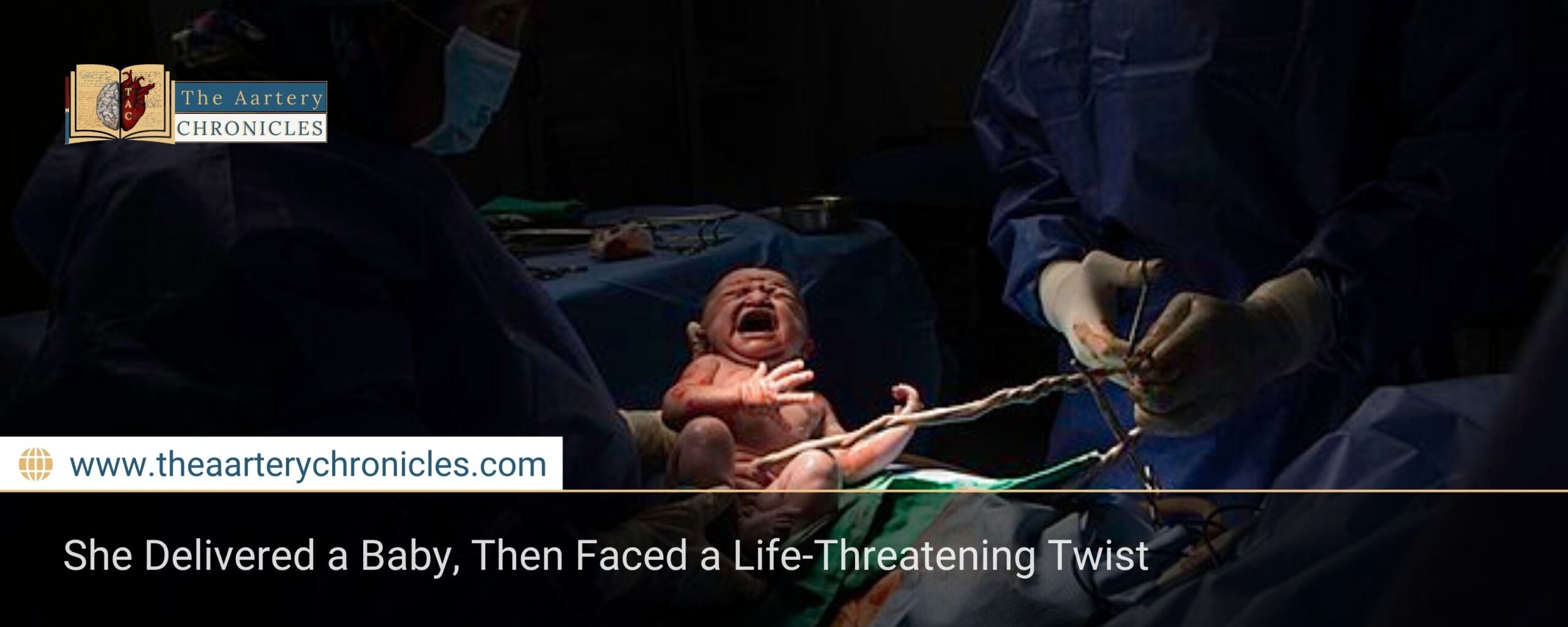

She Delivered a Baby, Then Faced a Life-Threatening Twist
A 33-year-old woman developed a serious intestinal condition known as transverse colon volvulus just 20 hours after giving birth to her baby. The childbirth itself had been smooth and uneventful, but this unexpected complication quickly turned into a medical emergency. The case was successfully treated at a hospital in China and recently published in BMC Pregnancy and Childbirth on April 12, 2025.
Background: Healthy Pregnancy, Unexpected Turn
This was the patient’s first pregnancy. She had been diagnosed with gestational diabetes, a condition that affects blood sugar levels during pregnancy, but she managed it well through proper diet and regular exercise. She had no other medical problems and no history of abdominal surgeries.
At full term, she delivered a healthy baby girl through a normal vaginal birth. Everything seemed fine until about 20 hours later when she began to feel uncomfortable.
What Is Volvulus and Why Is It Dangerous?
Volvulus is a condition where part of the intestine twists around itself, causing a blockage. This twist can cut off blood flow and damage the bowel if not treated quickly. While volvulus can happen during pregnancy or shortly after childbirth, it is extremely rare, especially involving the transverse colon, which runs across the upper part of the abdomen.
Rapidly Worsening Symptoms
Initially, she experienced mild abdominal discomfort, which soon worsened into severe pain and vomiting. Her abdomen appeared bloated and tender during a physical exam. Due to the sudden and serious nature of her symptoms, doctors quickly ordered imaging tests including an ultrasound and CT scan.
These tests revealed concerning signs: a swollen intestine, twisted blood vessels in the bowel (suggesting a volvulus), and fluid in the abdominal cavity. Blood tests also showed high white blood cell counts and elevated C-reactive protein (CRP) levels, both of which indicate inflammation.
Recovery and Follow-Up
A team of specialists quickly diagnosed her condition and rushed her to the operating room. During surgery, they found around 1.5 litres of bloody fluid in her abdomen and a 360-degree twist of the transverse colon. Thankfully, the bowel had not yet died (no necrosis was present), so doctors were able to untwist it without removing any part of the intestine.
To prevent the problem from happening again, they anchored the colon in place and created a temporary colostomy (an opening through the abdomen to drain waste).
Emergency Surgery and Treatment
After the surgery, the patient recovered well. Her inflammation levels dropped, her pain improved, and she stabilized quickly. She was able to go home after 16 days in the hospital.
Four months later, she underwent a second surgery to close the colostomy and remove the affected portion of the colon. That procedure also went smoothly, and she made a full recovery.
Why This Case Matters
This rare case serves as an important reminder that serious conditions like volvulus can occur even after a routine childbirth. Because the symptoms of abdominal pain, bloating, and nausea can easily be mistaken for normal postpartum discomfort, early diagnosis can often be delayed.
Dr. Sipei Nie and colleagues from the Department of Gynecology and Obstetrics at Jiangning Hospital in Nanjing, China, emphasized the need for awareness:
“Doctors should stay alert when a new mother complains of ongoing or worsening abdominal pain. Quick imaging and a surgical evaluation can make a life-saving difference.”
Conclusion
While uncommon, transverse colon volvulus can be life-threatening if not recognized and treated early. Health professionals should maintain a high level of suspicion when evaluating postpartum women with severe abdominal symptoms. Prompt action can lead to successful outcomes, even in rare and complex cases like this one.
Source: Inputs from various media Sources

Priya Bairagi
Reviewed by Dr Aarti Nehra (MBBS, MMST)
I’m a pharmacist with a strong background in health sciences. I hold a BSc from Delhi University and a pharmacy degree from PDM University. I write articles and daily health news while interviewing doctors to bring you the latest insights. In my free time, you’ll find me at the gym or lost in a sci-fi novel.








